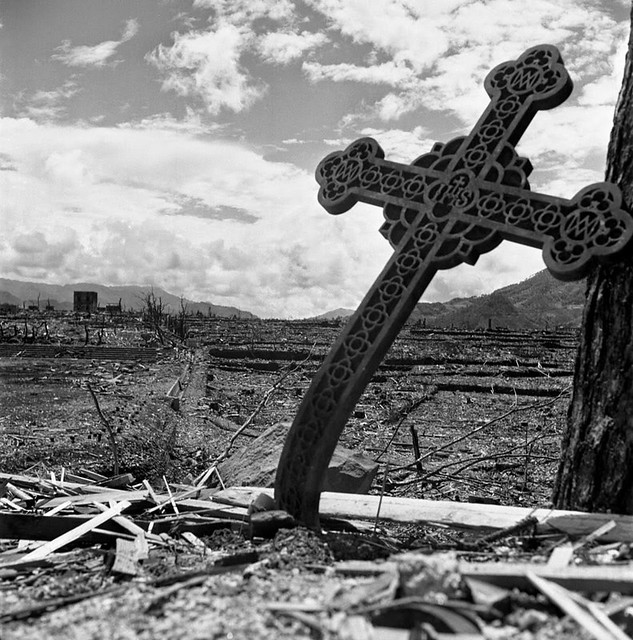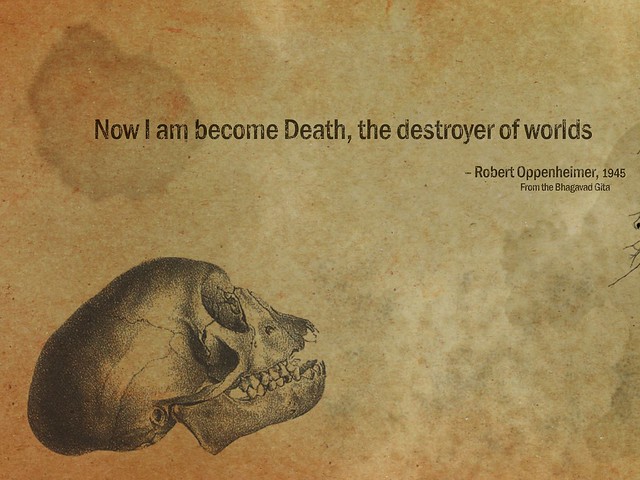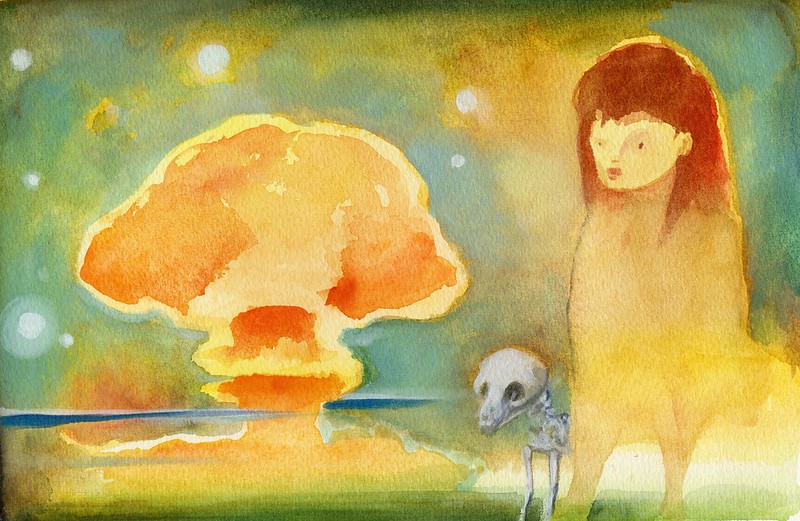Nagasaki: The Sufferings of Christ

This is the third in a series of blog posts on the seventieth anniversary of the creation and use of the atomic bomb. The first two are Los Alamos: We Have Become Death and Hiroshima: An Anti-Transfiguration. I have asked Peri to write the final one on Nagasaki.
Nagasaki: The Sufferings of Christ
Peri Zahnd
1945. What a year it was. What it must have been like to have lived in that time — the last days of WWII, watching the evil Third Reich disintegrate, the fall of the Nazi regime, dancing in the streets of America when it was announced the war in Europe was finally over.
I can’t imagine what it was like to hear in the days and weeks to follow the stories of the concentration camps being liberated, the piles of bodies, the skeletal survivors. Had such horror ever been seen on the earth? I absolutely agree, the world must “never forget” what awful things were done in an attempt to utterly wipe out a people group, the Jews.
But the war wasn’t really over. America was also at war with Japan, and the Japanese had not yet surrendered. We were still at war, for a few more months, until August, when two atomic bombs were dropped in the space of four days on two major cities in Japan. I think it is safe to say again that such horror had never been seen on the earth.
Read more

